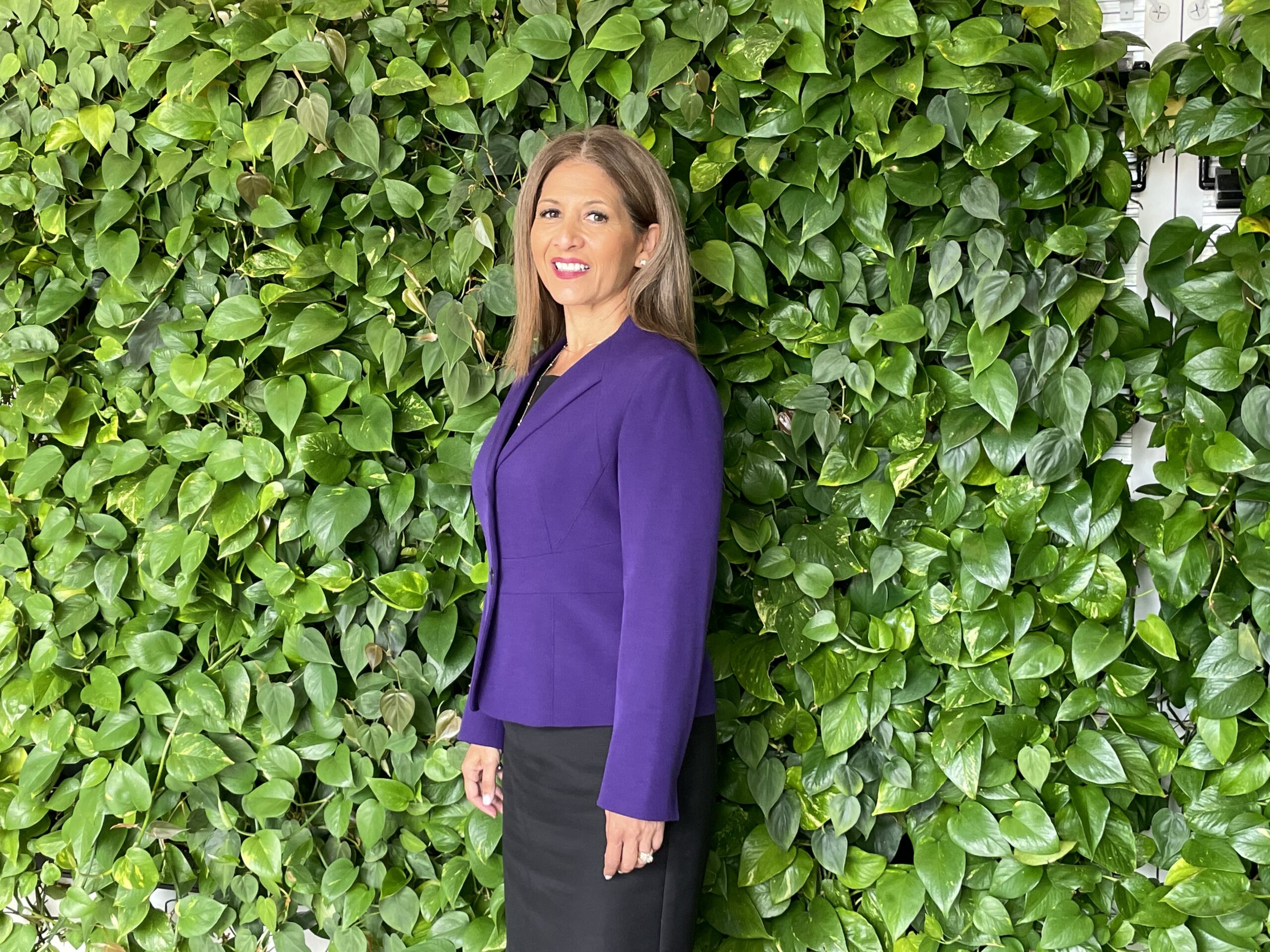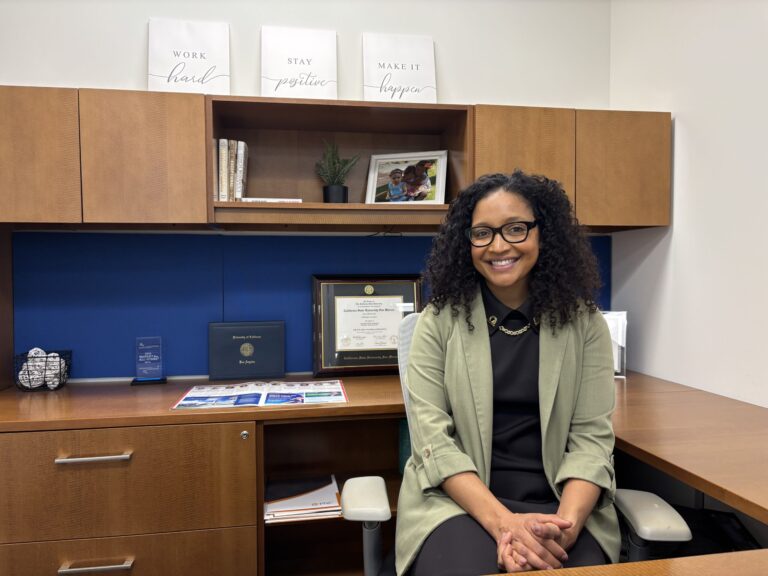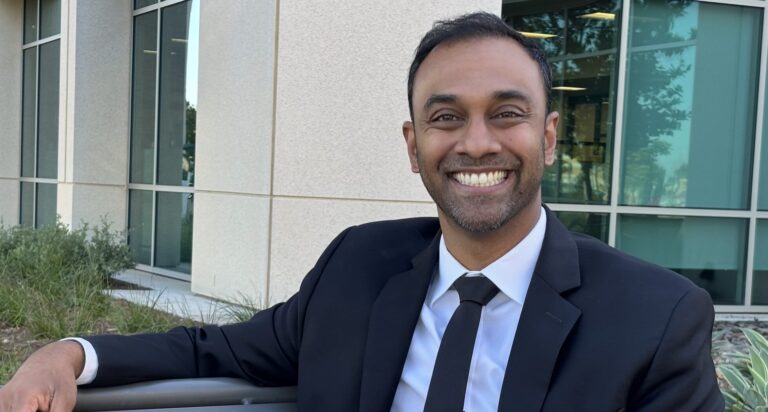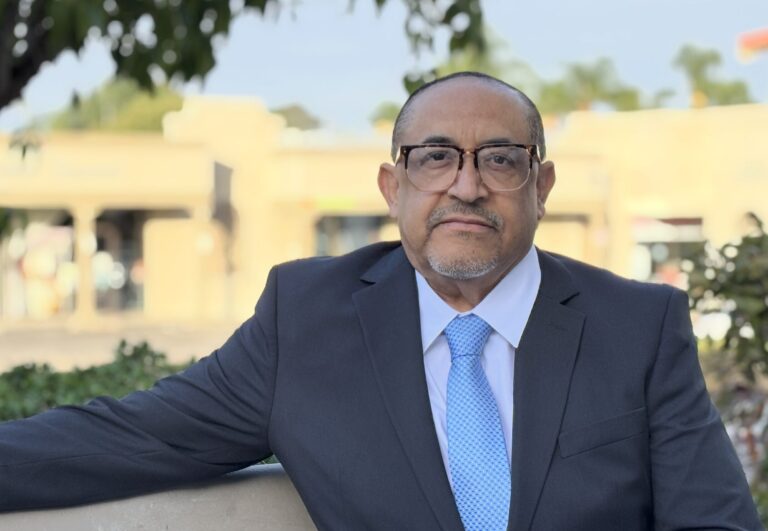Claudia Garcia Grasso: From East LA to assistant district attorney and leader in domestic violence awareness
Claudia Garcia Grasso grew up among gang members, her home protected by iron bars. “We had one situation where there was a gunshot through our apartment,” she said. Today, she is a deputy district attorney and the executive director at One Safe Place, in San Marcos.
Born and raised in East Los Angeles in the 1970s, Claudia is from a very tightknit community where everyone spoke Spanish, and her family had “old-school Mexican values.”
She remembers growing up with three siblings and lots of love, but where “Education was not a priority because my parents didn’t know any better,” she told North County Informador.
“Because we grew up in poverty, that was the immediate focus—we have to put food on the table,” she told us. “The minute you turn 18, you’re expected to get a job and start helping the family.”
But she said her mother saw a spark in her. She told Claudia the family could not help her with school but that she could “work hard and break the cycle of poverty.”
“I loved school,” Claudia explained. “I loved reading. …I never left my neighborhood. I never traveled. I didn’t know what was out there. So, my only connection to the outside world were books…my only way to enhance my vocabulary, my way to learn about other worlds.”
Young Claudia faced a challenge. “One of my mother’s very close cousins was murdered at the middle school I was supposed to go to in East LA,” she said. Her mother made the sacrifice of getting a second job to send her to Catholic school.
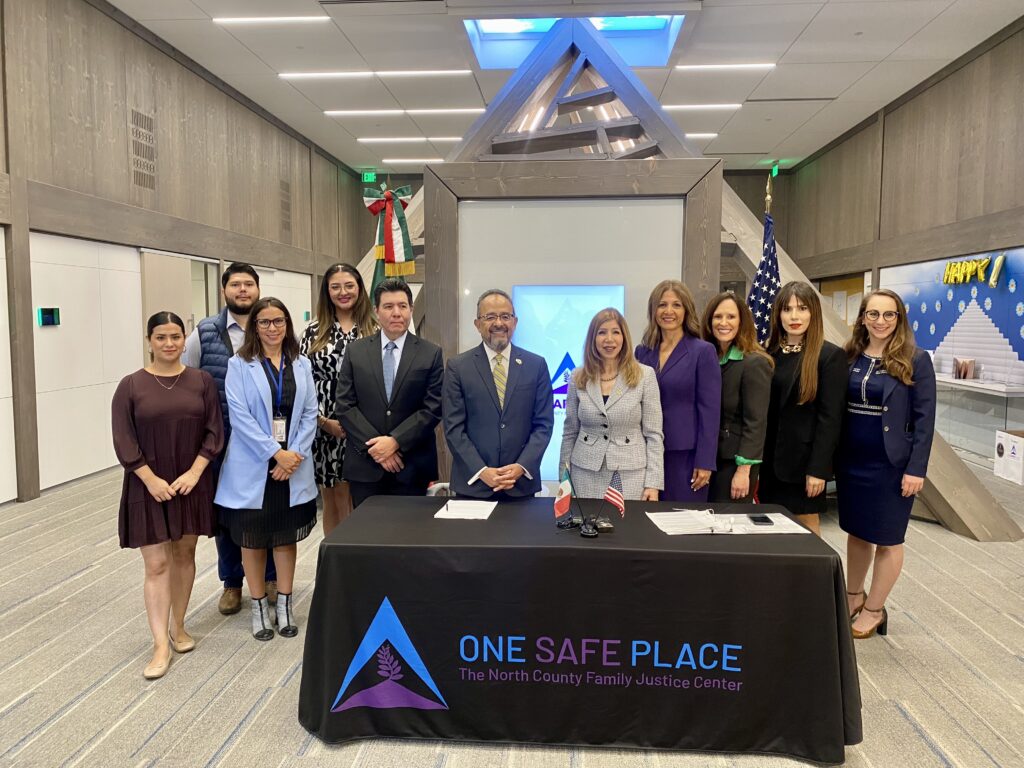
Claudia worked hard there to get excellent grades and won a full scholarship to UCLA. “My parents were very proud,” but her father asked her if there were “any nice young men at UCLA” she could marry.
She told us getting married young was all her family knew. “I have 97 first cousins…I’m not the oldest by far, but I was the very first to go to college,” she said. So, her family was proud, but at the same time questioned her need to continue studying, especially being a female.
“I kind of broke the barrier and said…this is going to set the example for the rest of the cousins that they can do this,” she said.
She struggled at first, suffering from imposter syndrome. “Do I belong here? Do I fit in? Am I worthy of this?” she wondered. But she worked hard and graduated with honors.
Mexicans Do Go to Harvard
During college, Claudia volunteered at a center for abused children. Although her dream was to go to law school, she decided to teach for a few years first.
“I loved teaching,” she told us. “The teaching part wasn’t difficult. It was the issues that the kids were dealing with. Young, middle school kids talking about being pressured to have sex, to take drugs, to join gangs.”
Claudia said she didn’t know how to help the kids and was terrified of saying the wrong thing. So, she found a master’s program that dealt with children in this situation. But it was at Harvard!
“I was shocked because many of the extended family said, you can’t go to Harvard. Mexicans don’t go to Harvard.”
She got into Harvard School of Education, where she completed her master’s degree. “It was…tailored to children at risk. It focused on inner-city kids and what issues they were facing.”
“Everyone said, ‘there are no Mexicans there, so you just have to be ready for that’. I thought, okay. I’m going there to learn,” she remembers.
Claudia was shocked that people thought she wouldn’t make it. “So many people, my own people, who said, Mexicans don’t go to Harvard.” It was in the 1990s, and “nobody was going to schools and encouraging Latino kids and telling them, yes, you can, and this is how you go about it.”
Her experience at Harvard was wonderful. “I recognized that everyone there was just brilliant. They were from all over the world, so they were very welcoming.”
While at UCLA, Claudia worked 30 hours a week; at Harvard, she held two jobs. She also had to pay back for her education after graduating. But, she said, “It was absolutely worth it.” People think schooling is so expensive, but “they can never take your degree away from you,” she added.
“People who doubt you, you don’t get into arguments with them,” she said. “You show them with your work what you do and what you’re all about, and your values and your work ethic.”
Law School and Family Life
After graduation from Harvard, Claudia started working with middle-school kids in San Diego. She met the man who would become her husband, which made her decide to study law in the area, at University of San Diego School of Law.
Determined to become a lawyer, Claudia kept going even when she became pregnant with her daughter during her second year of law school. “Everyone said, ‘you should take time off.’” She said she was fortunate to count on her mother-in-law to help her with her child, and on her husband’s encouragement.
She had married at 30. “That’s old in my father’s eyes,” she laughed, but “he adores his grandchildren.”
She took and passed the bar on her first attempt, with a six-month-old baby. Then, she stayed home with her daughter for six months, before going to work. “It was time to practice and set that example for my daughter,” she said.
Deputy District Attorney, Mom, and Mentor
Claudia got a job at the district attorney’s office, where her mentor was Summer Stephan, who told her, “You can be a woman and balance your family and work.”
Claudia said her own example made her daughter into an independent woman and showed her son he could do anything. Her daughter, who will graduate college in May, tells her, “You paved the way for me.”
Proud to be able to help others, she was a prosecutor for 20 years with the District Attorney’s office, often dealing with child abuse and domestic violence cases. “We work to get predators off the street,” she said, protecting women and children.
She encourages everyone to find a mentor and fight for what they want in life. “In spite of your adversities, in spite of poverty, in spite of gang violence, you have the strength, you have the resiliency,” she said.
“And mentors are key, they help push you and serve as that drive, to say, yes, I can do this.”
Claudia is proud of one of her mentees, a woman whose case she once prosecuted. “Her mom was murdered by her mom’s boyfriend in front of her. She testified when she was 11 years old and said, ‘Miss Claudia, I’m going to someday do what you do.’ She now is a deputy DA, and she works in our office,” Claudia told us.
Since July 5, 2022, Claudia is the executive director of One Safe Place. She said people ask her if she misses being in the courtroom. “I would say, not yet, because we’re saving lives here at One Safe Place…”

